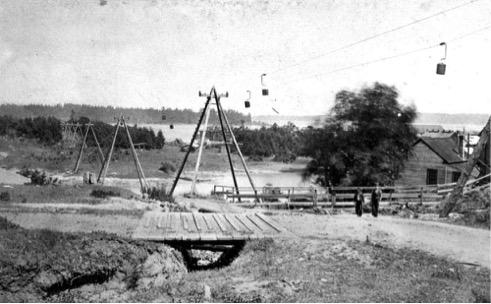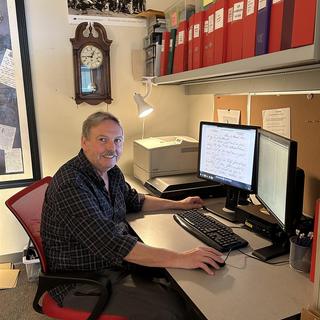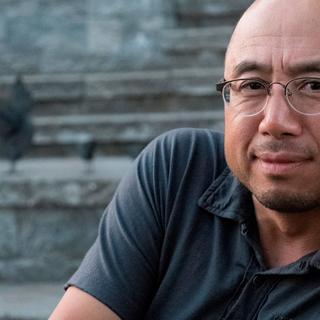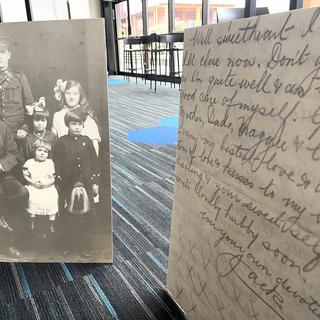Admission to the exhibit is free and it runs until June 25 during regular Nanaimo Museum hours, Tuesday to Saturday from 10 am to 4 pm. Photo credit: Nanaimo Community Archives
Exhibit, which explores the history behind some of city’s more unusual street names, runs until June 25.
Nanaimo is home to many streets with less-than-common names, such as Dingle Bingle Hill Road and Bergen Op Zoom Drive.
Between January and April, students in two upper-level history courses at Vancouver Island University (VIU) researched the intriguing stories of how these roads acquired their names and historical events that have taken place on them. The students created an exhibit sharing this research, which is on display in the Nanaimo Museum’s Community Gallery.
“Working to create this exhibit, I have grown to love a part of the city I grew up in which I had never loved before,” says Santiago Dominguez, a fourth-year history student. “There is an element of Nanaimo pride that comes with our strange and curious history with road names that not all cities share.”
Students in Dr. Katharine Rollwagen’s Public History course and Dr. Kelly Black’s History of Vancouver Island course spent the entire Spring Semester working collaboratively on The Word on the Street: Roads that Built Nanaimo.
The students noticed in particular how many street names tie Nanaimo to other parts of the world. Bergen Op Zoom for example, is a town in the Netherlands and the site of a Canadian War Cemetery where hundreds of Canadian soldiers who died in the battle of Scheldt in 1944 are buried. Other street names, like Bing Kee Street and Labieux Road, bear the names of early settlers from China and Belgium. Mah Bing Kee was originally from Guangzhou, China, and owned several local businesses in the late-nineteenth and early-twentieth centuries. Leopold Labiaux arrived in Wellington in 1908 and worked as a miner, farmer and baker during his life.
This is not the first time that the Nanaimo Museum has collaborated with VIU to create an exhibit for the Community Gallery. In 2018, Rollwagen’s Public History class created an exhibit called The Forgotten Flu, which told the story of the Spanish flu pandemic and its effect on Nanaimo. The latest exhibit is a continuation of the relationship VIU has with the Nanaimo Museum.
“We enjoy working with VIU history students!” says Aimee Greenaway, Curator at the Nanaimo Museum. “They are enthusiastic and their Community Gallery exhibit presents interesting perspectives on local history. I’m looking forward to seeing how museum guests interact with the exhibit and hearing the conversations and questions that are sparked by the content.”
Admission to the exhibit is free and it runs until June 25 during regular Nanaimo Museum hours, Tuesday to Saturday from 10 am to 4 pm.
-30-
Media Contact:
Rachel Stern, Communications Officer, Vancouver Island University
C: 250.618.0373 l E: Rachel.Stern@viu.ca | T: @VIUNews





